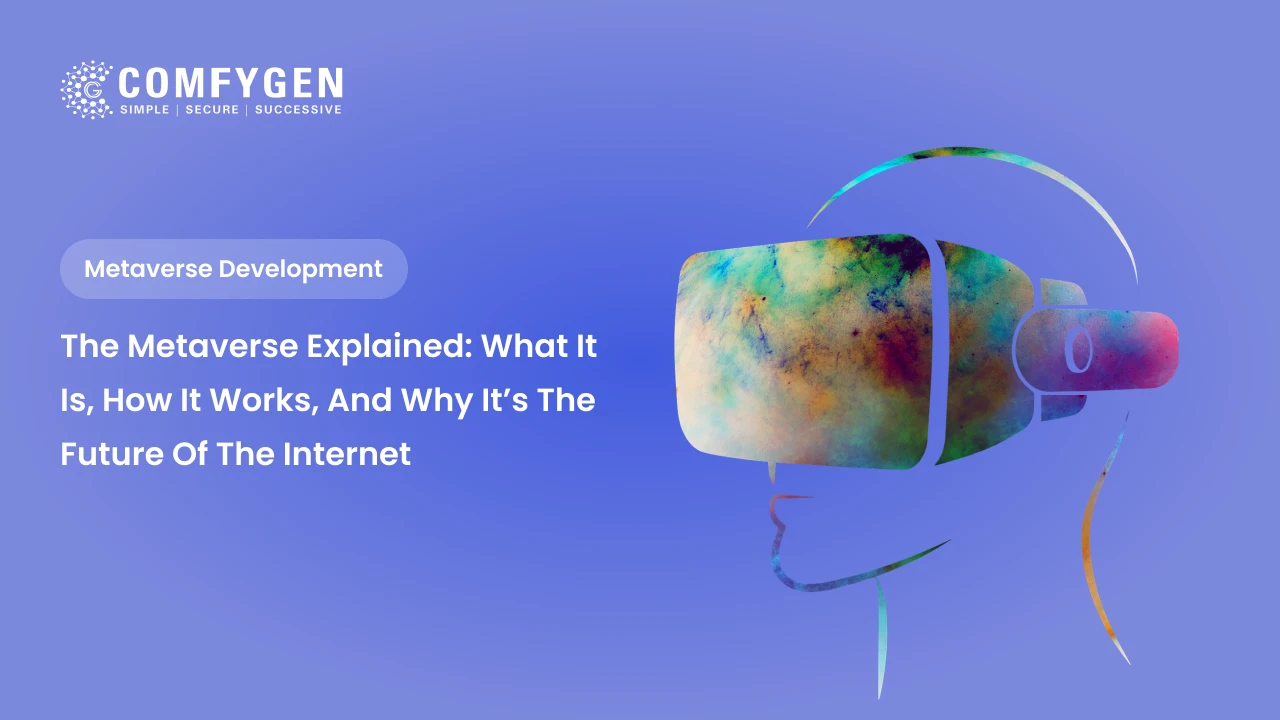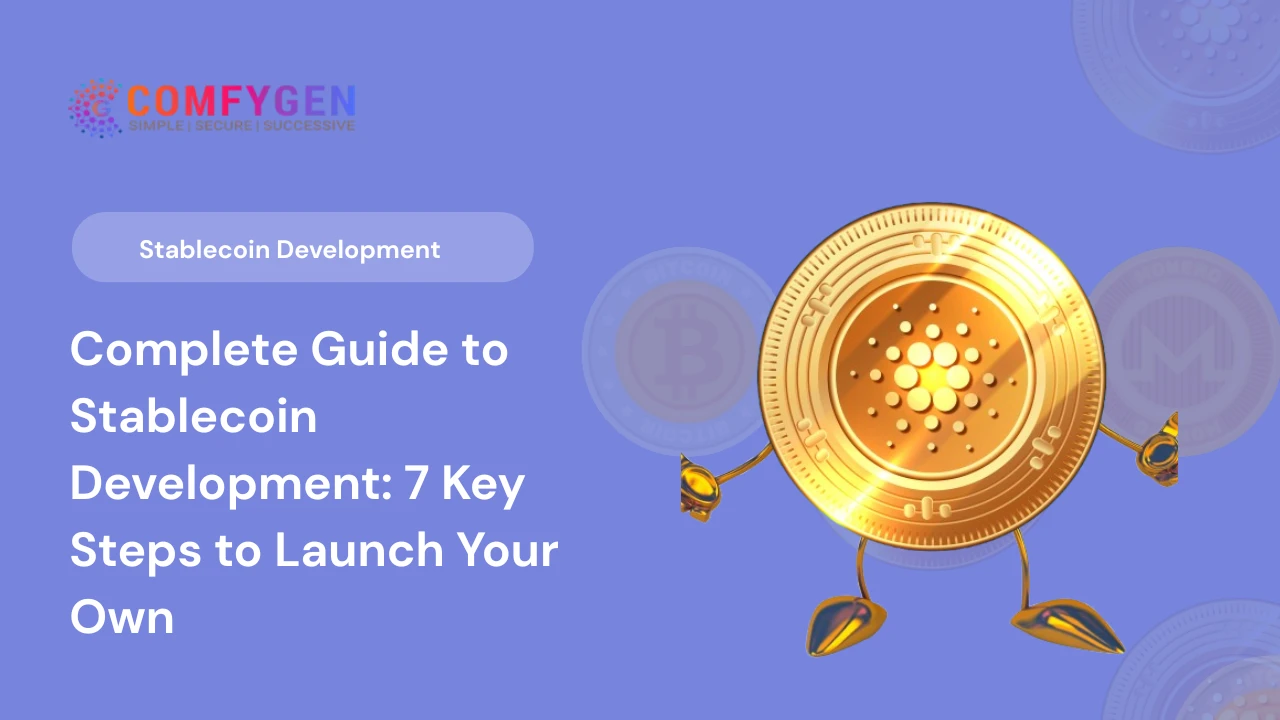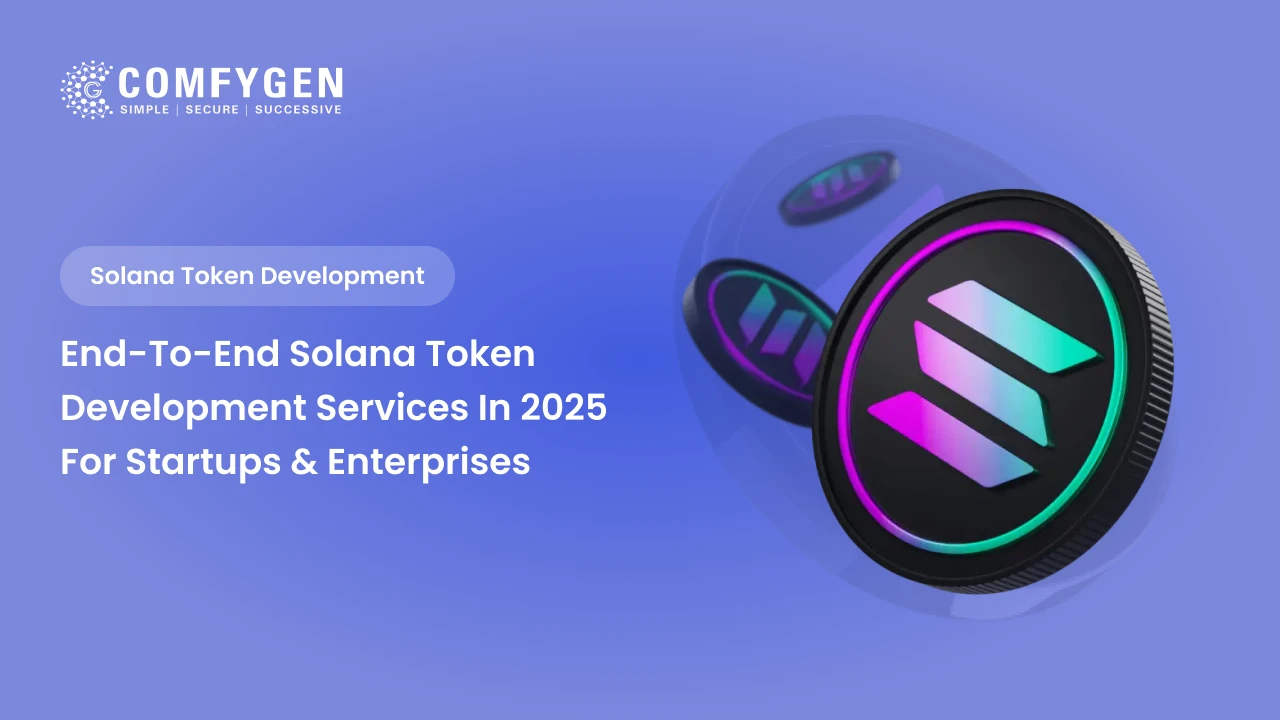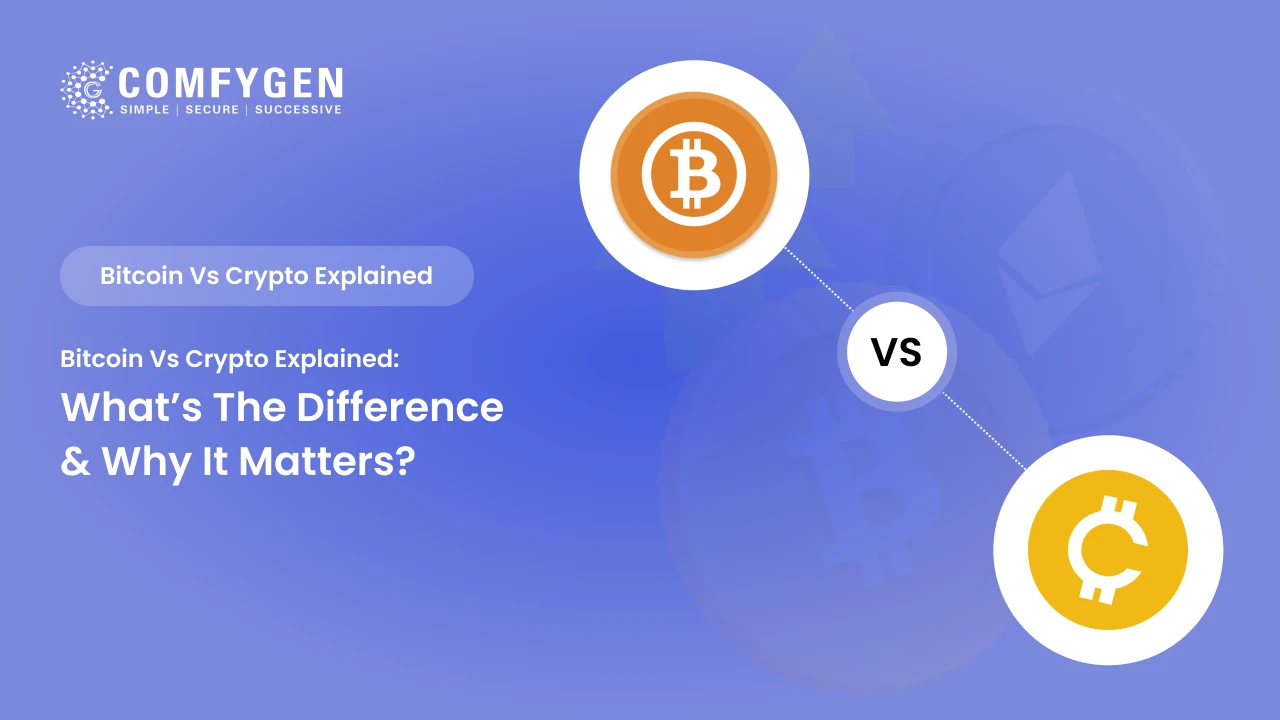The Metaverse Explained: What It Is, How It Works, and Why It’s the Future of the Internet
Introduction
From static web pages to social media, and now to immersive digital worlds, the next frontier is the Metaverse. It’s no longer just a buzzword used in tech conferences or science fiction movies. Instead, it’s rapidly shaping how we work, play, interact, and even make money online. But what exactly is the Metaverse? How does it work? And why are companies worldwide investing billions in it? In this detailed guide, we’ll explore the Metaverse in depth — what it is, how it operates, its real-world use cases, and why businesses are turning to Metaverse development companies to build the next digital era.
What Is the Metaverse?
At its core, the Metaverse is a collective, virtual shared space that is persistent, decentralized, and enhanced by virtual reality (VR), augmented reality (AR), and blockchain technology. It is a blend of physical and digital realities, where users interact through customizable avatars and engage with fully immersive digital environments.
It’s like the internet — but with a 3D interface that allows you to “step into” it.
Brief History & Evolution
- Early Concepts: The term “Metaverse” was first coined by author Neal Stephenson in his 1992 sci-fi novel Snow Crash.
- Modern Evolution: With advancements in 3D rendering, virtual economies, and blockchain, the Metaverse has evolved into a serious business opportunity.
In 2025, we’re witnessing a shift from speculative hype to real-world development, with tech giants and startups alike building digital infrastructure for the virtual future.
Want to Hire
Metaverse Developers Today
Contact Now
How Does the Metaverse Work?
The Metaverse isn’t a single app or game — it’s an interconnected ecosystem powered by several advanced technologies.
Core Technologies Behind the Metaverse
1. Virtual Reality (VR) and Augmented Reality (AR)
These provide the immersive user experience. VR creates complete digital worlds, while AR overlays digital elements on the real world.
2. Blockchain and NFTs
Blockchain enables ownership, interoperability, and security of digital assets. NFTs (non-fungible tokens) represent unique items like land, avatars, or art within the Metaverse.
3. Artificial Intelligence (AI)
AI plays a key role in building responsive avatars, automating interactions, and creating personalized experiences — the backbone of AI-driven Metaverse development companies.
4. 3D Modeling and Digital Twins
Everything in the Metaverse — from clothing to buildings — is created with 3D models. Digital twins replicate real-world environments in the Metaverse for realistic simulation.
The Role of Web3 and Decentralization
Unlike traditional internet apps run by centralized corporations, the Metaverse thrives on Web3 principles: user control, privacy, and decentralization. This opens up opportunities for Web3 Metaverse development companies to build platforms where users own their data and digital assets.
Key Features of the Metaverse
- Persistence: The Metaverse continues to exist and evolve even when users are offline.
- Interoperability: Users can move their avatars and digital assets across platforms.
- Digital Economies: Users can earn, spend, and trade using cryptocurrencies and tokens.
- Immersive Experiences: Real-time interaction in 3D environments makes engagement deeper than ever.
- Avatar-Based Identity: Users explore, socialize, and work using personalized avatars.
Real-World Use Cases of the Metaverse
The Metaverse is already being used in powerful ways across industries:
1. Gaming and Entertainment
Games like Fortnite, Roblox, and Decentraland show how immersive gameplay, virtual concerts, and social interaction blend in the Metaverse.
2. Virtual Workspaces
Platforms like Meta Horizon Workrooms and Microsoft Mesh allow virtual meetings, collaboration, and digital offices, reducing the need for physical locations.
Many companies hire a Metaverse development company in India or the UAE to create tailored virtual work environments.
3. Education and E-Learning
Metaverse-powered classrooms allow students to attend lectures in 3D spaces, interact with virtual labs, and learn in immersive environments — a game-changer for remote education.
4. E-Commerce and Digital Fashion
From trying on clothes in virtual fitting rooms to buying digital wearables for avatars, Metaverse e-commerce is a booming trend. Fashion brands like Gucci and Nike are already exploring this space.
5. Real Estate and Virtual Land
Virtual land can be bought, sold, or leased on platforms like The Sandbox or Somnium Space. This has created a new economy, and investors are hiring top Metaverse development companies to build digital property marketplaces.
Benefits and Challenges of the Metaverse
Benefits
- Global Collaboration: Work, meet, and connect with anyone, anywhere.
- New Business Models: NFT marketplaces, virtual real estate, and immersive e-commerce.
- Immersive Learning & Entertainment: A new paradigm for education and media.
Challenges
- Privacy & Security Risks: Data protection and identity theft are key concerns.
- Digital Divide: High-speed internet and advanced hardware are still inaccessible for many.
- High Development Costs: Building fully functional Metaverse environments requires expertise and a budget, which makes selecting the right Metaverse development company critical.
The Future of the Metaverse in 2025 and Beyond
Trends to Watch
- AI-Driven Worlds: AI will generate dynamic environments, NPCs, and even entire worlds.
- Hyper-Realistic Avatars: Powered by deep learning and motion capture.
- Interconnected Metaverses: Users will move freely between platforms with a single identity.
Industry Adoption Across the Globe
From Dubai to the USA, global enterprises are hiring Metaverse developers to:
- Build training simulations
- Host virtual conferences
- Sell virtual products
- Create branded immersive experiences
If you’re a business planning to enter the space, partnering with the best Metaverse development company in India or the UAE ensures cost-effective, cutting-edge solutions.
How Much Does Metaverse Development Cost?
The cost of Metaverse development depends on:
- Scope of the platform (gaming, social, enterprise, marketplace)
- Tech stack (VR/AR, blockchain, AI)
- Features (avatars, payment systems, smart contracts)
- Design complexity and server requirements
On average, basic environments can start from $30,000, while enterprise-grade platforms can reach $250,000+. Partnering with a reliable Metaverse development services company ensures transparency, speed, and scalability, without hidden costs.
Why Businesses Are Hiring Metaverse Developers in 2025
From startups to enterprises, brands are now looking to:
- Hire Metaverse developers with expertise in 3D design, blockchain, and AR/VR
- Build immersive virtual offices or showrooms
- Launch tokenized economies using NFTs
- Offer interactive customer experiences
With a strong pool of developers, low cost, and robust tech infrastructure, India has become a global hub for Metaverse projects.
Ready to
Enter the Metaverse?
Contact Now
Conclusion
Whether you’re a business, developer, investor, or just a curious netizen, the Metaverse is not a passing trend — it’s a digital revolution. It will shape how we live, work, learn, and socialize. As more businesses look to build their presence in this virtual universe, the demand for experienced, innovative, and scalable Metaverse development companies will only rise.
So, whether you’re planning your first virtual event, an immersive digital store, or a full-blown Metaverse platform, now’s the time to act.
The future isn’t coming. It’s already here.
Want to Build in the Metaverse?
Partner with a top Metaverse development company that offers:
- Full-cycle Metaverse development solutions
- Blockchain, AI, and Web3 integration
- Cost-effective services in India, Dubai, UAE & USA
Frequently Asked Questions (FAQs)
What is the Metaverse in simple terms?
How does the Metaverse work?
The Metaverse operates on technologies like VR/AR for immersion, blockchain for ownership, AI for intelligent experiences, and Web3 for decentralization.
What are the benefits of the Metaverse?
Benefits include immersive learning, virtual workplaces, new digital business models, global interaction, and secure digital asset ownership.
How much does Metaverse development cost?
The cost varies widely based on features and scope. Basic platforms may start from $30,000, while enterprise-level solutions can exceed $250,000.
Why should I hire a Metaverse development company?
A professional Metaverse development company ensures end-to-end solutions including 3D design, blockchain integration, Web3 security, and custom immersive environments.
Is the Metaverse the future of the internet?
Yes, the Metaverse is transforming how people connect, work, shop, and play online—redefining the internet as an interactive 3D experience.

Mr. Saddam Husen, (CTO)
Mr. Saddam Husen, CTO at Comfygen, is a renowned Blockchain expert and IT consultant with extensive experience in blockchain development, crypto wallets, DeFi, ICOs, and smart contracts. Passionate about digital transformation, he helps businesses harness blockchain technology’s potential, driving innovation and enhancing IT infrastructure for global success.
Based on Interest
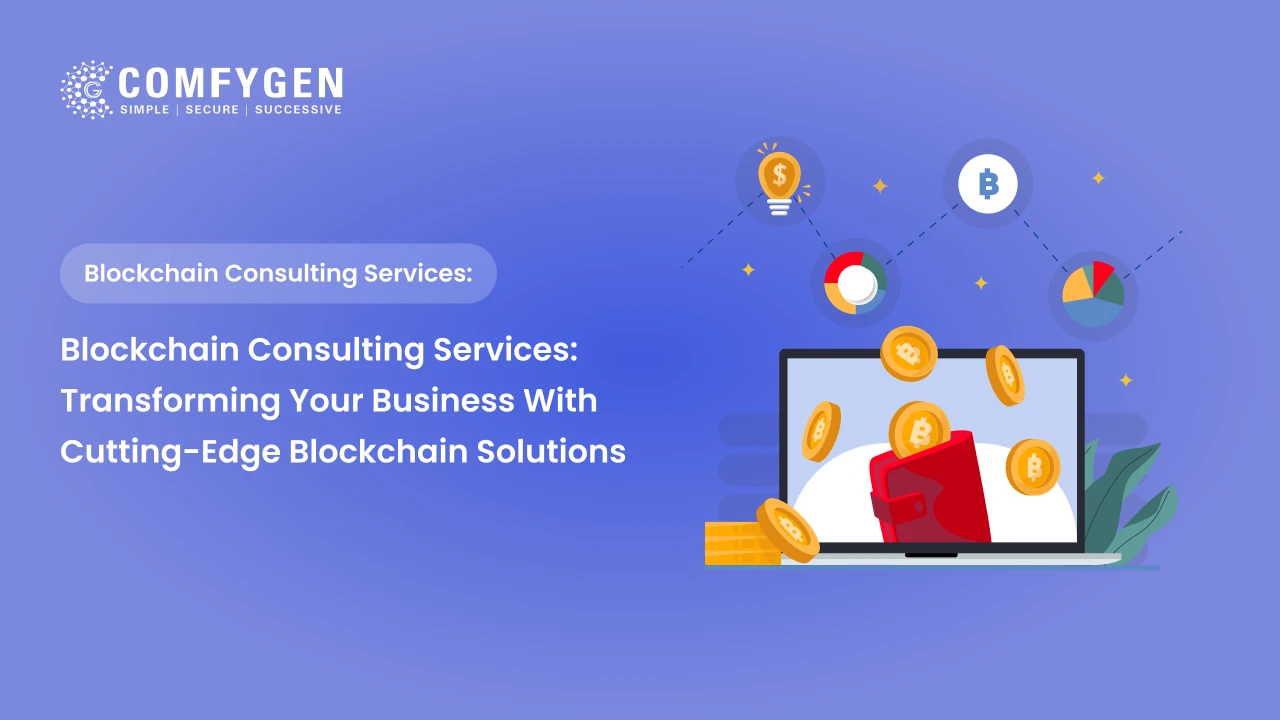
Blockchain Consulting Services: Transforming Your Business with Cutting-Edge Blockchain Solutions
Introduction Blockchain technology is revolutionizing industries by providing secure, decentralized, and transparent solutions. As businesses across the world explore their potential,…
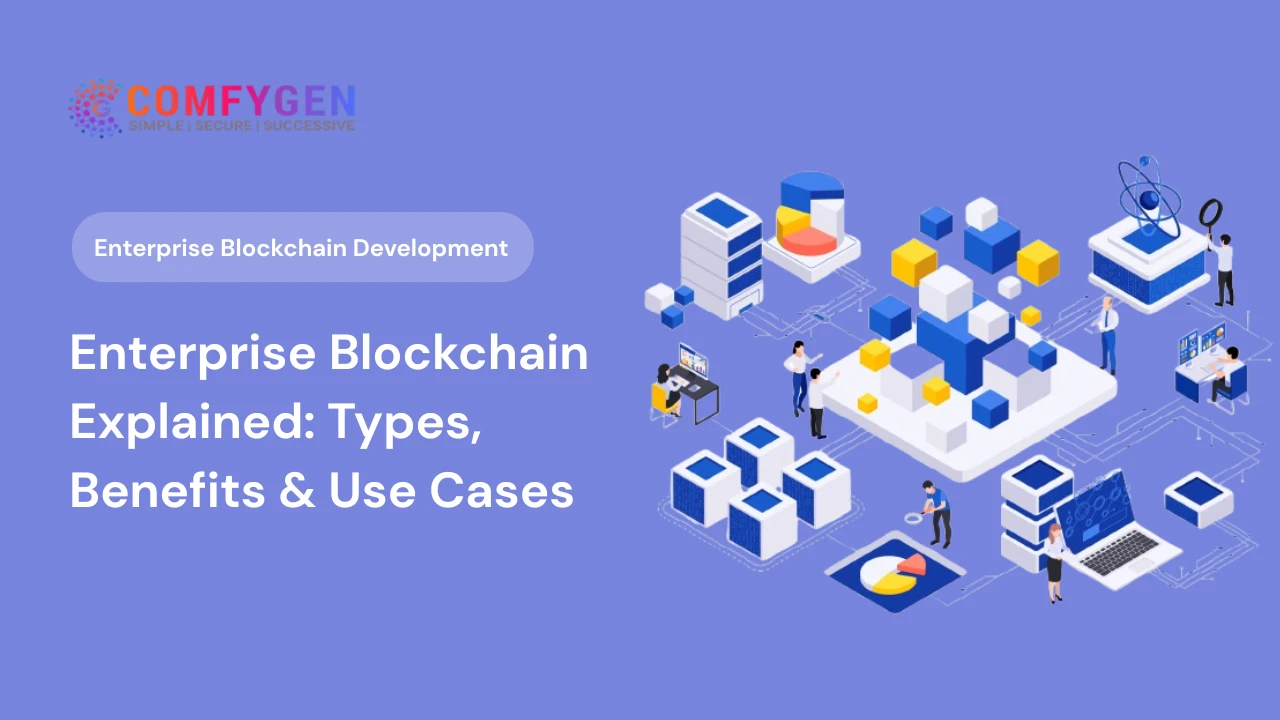
Enterprise Blockchain Explained: Types, Benefits & Use Cases
Introduction to Enterprise Blockchain In today’s digital-first world, enterprises are constantly seeking innovative technologies to boost efficiency, security, and transparency. One such…
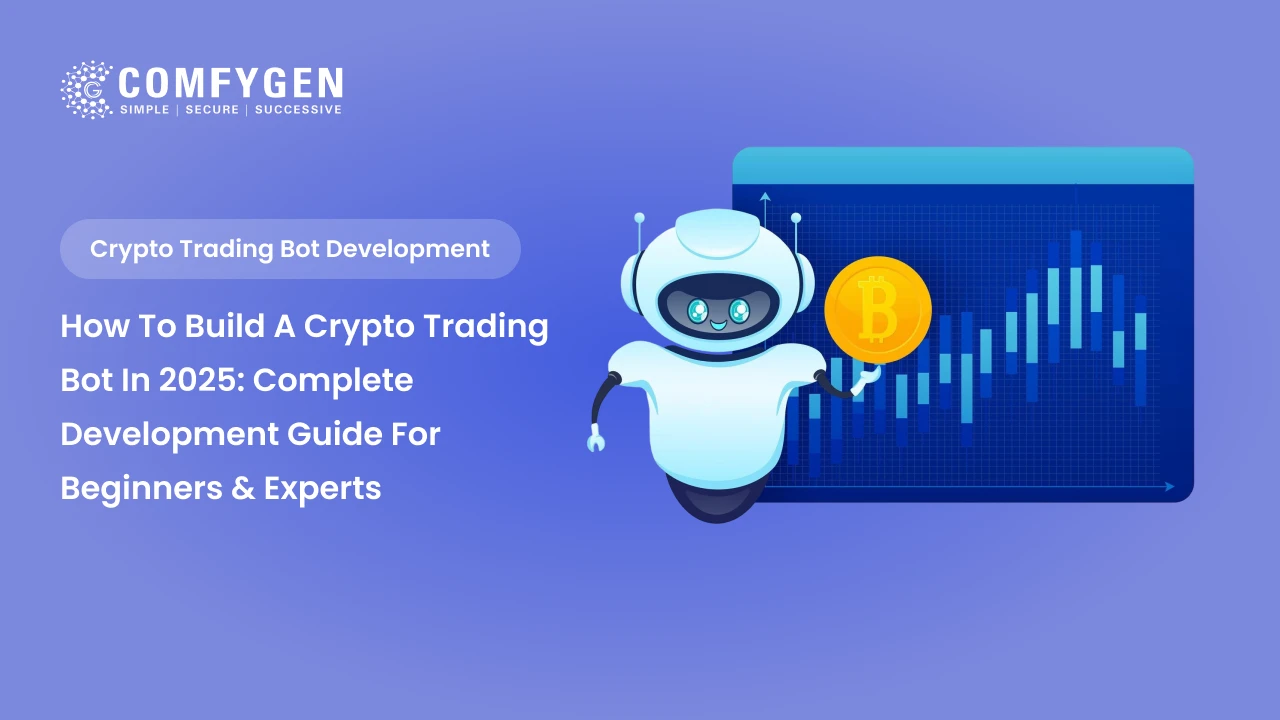
How to Build a Crypto Trading Bot in 2025: Complete Development Guide for Beginners & Experts
Introduction The world of cryptocurrency never sleeps. With 24/7 markets and volatile price movements, the need for automated trading solutions has never…

